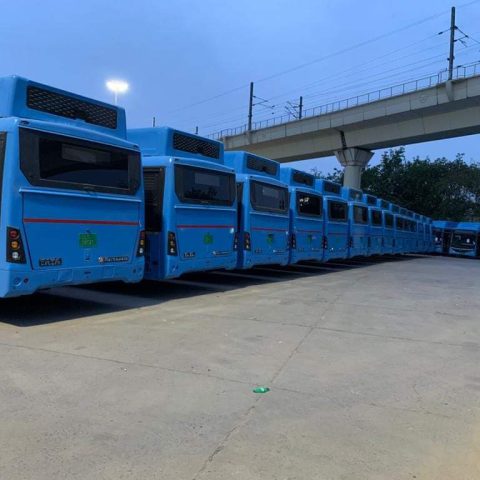High breakdown rate for new e-buses in Delhi, local media report
Delhi’s venture to introduce 100 new electric buses on its roads (they were launched end of June) has encountered a major setback, as nearly one-third of these buses have experienced breakdowns within just six days of their deployment. The alarming average of 29 breakdowns per day has raised concerns about the reliability and performance of […]

Delhi’s venture to introduce 100 new electric buses on its roads (they were launched end of June) has encountered a major setback, as nearly one-third of these buses have experienced breakdowns within just six days of their deployment. The alarming average of 29 breakdowns per day has raised concerns about the reliability and performance of these electric vehicles, as covered on the media Indian Express.
As many as 1,500 electric buses are set to be introduced in the city by end of this year.
The electric market in India is experience fast growth. According to the study of carried out by Ev Reporter 1,939 e-buses were sold in 2022 compared to 1,171 units in the previous year. In January 2022, the Convergence Energy Services Limited (CESL) issued a tender to request the provision of a total of 5,450 e-buses for the cities of Delhi, Calcutta, Surat, Bengaluru, and Hyderabad.
Electric buses in Delhi, high breakdown rate registered
The media writes that “according to data maintained at the Mayapuri bus depot, where all the buses have to report, the most common reason is “starting trouble”, followed by issues related to battery and accelerator defect“. But “other issues observed are water leaks from air-conditioners, defective doors, pressure leak and engine overheating”.
Transport Minister Kailash Gahlot is quoted as saying “I have learnt that when a bus is idle, the engine shuts off and takes around 2-3 minutes to restart. The matter will be taken up with the manufacturers. If the issue is not rectified within two-three days, the buses will be taken off operations and heavy penalties will be imposed”.
The e-buses, procured under the FAME-II policy, began arriving at the Mayapuri depot on May 13. However, due to accelerator defects, the prototype bus remained at the depot for over two weeks. They were finally pressed into service on June 29, with an initial fleet of 50 buses. Reportedly, 14 buses experienced breakdowns on the first day itself. On June 30, all 100 e-buses were launched for public use, but 41 of them broke down. The trend continued on subsequent days, with 21 buses breaking down on Tuesday.







